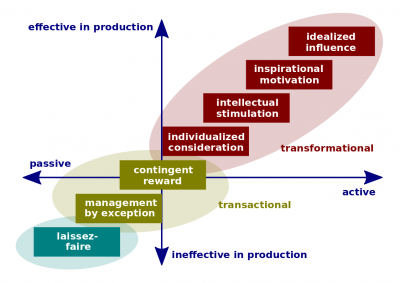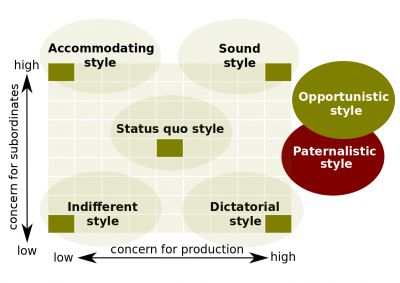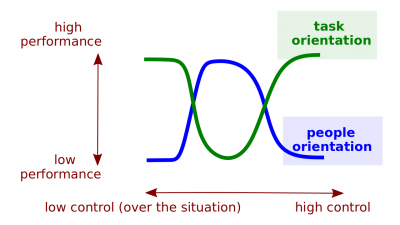Fiedler contingency model
Full Range Leadership Model. A model that depicts seven managerial leadership styles on a continuum: (1) laissez-faire, (2) management by exception, (3) contingent reward leadership, (4) individualized consideration, (5) intellectual stimulation, (6) inspirational motivation, and (7) idealized influence.
- Laissez-faire style. Leadership style of someone who lets the group make decisions and complete the work in whatever way it sees fit.
- Managerial grid. A two-dimensional grid for appraising leadership styles.
Fiedler contingency model (hereinafter, the Model) is a model that suggests that effective group performance depends on the proper match between a leader's orientation, whether he or she is task-oriented or people-oriented, and the degree to which the situation allows the leader to control and influence. The model (1) uses a least preferred coworker questionnaire to classify leaders, (2) assumes that leaders cannot be both task-oriented or people-oriented, and (3) suggests that people orientation is the best match to the situations with moderate control, while those leaders who are task-oriented best perform in situations with high or low control.
- Least preferred coworker questionnaire. An instrument that purports to measure whether a person is task or relationship oriented. The questionnaire has initially been developed for the Fiedler contingency model.


